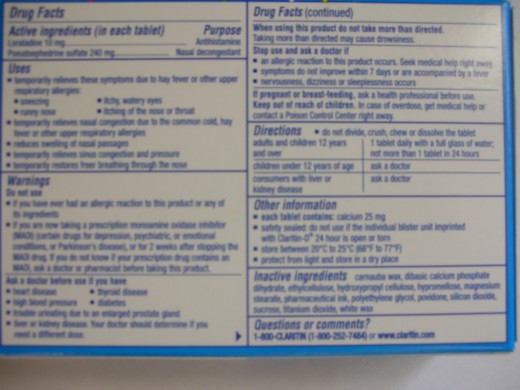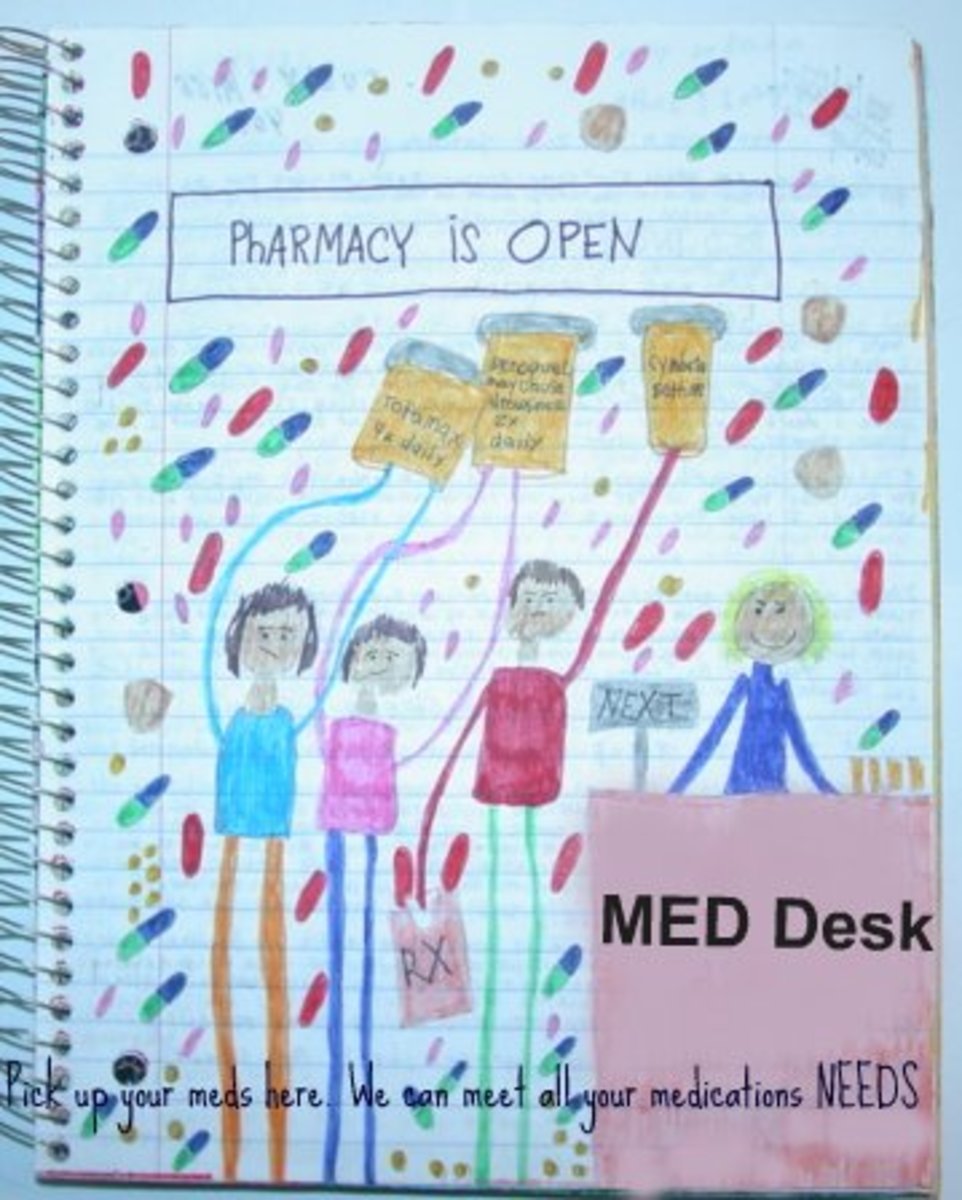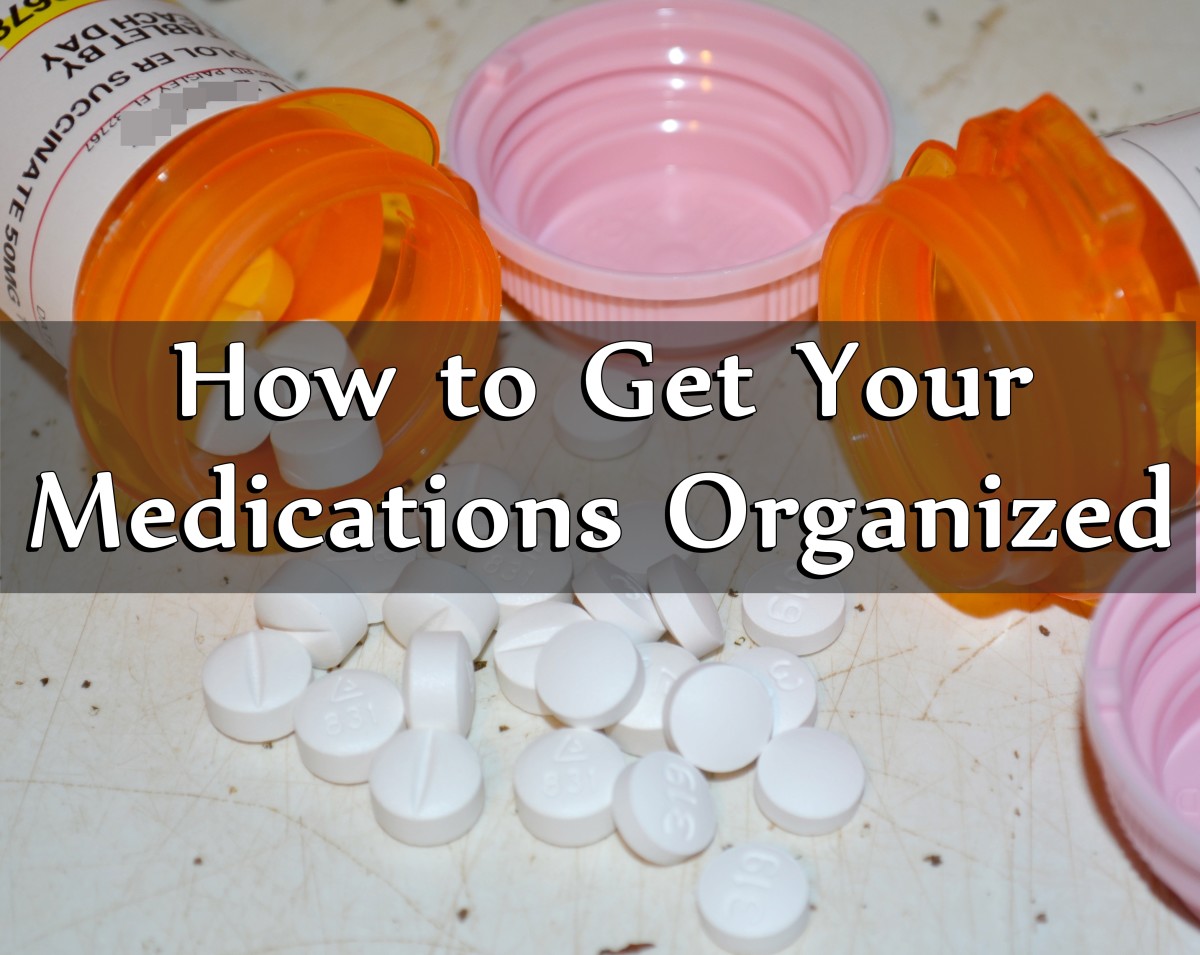- HubPages»
- Health»
- Health Care, Drugs & Insurance»
- Prescription & Over-the-Counter Drugs
Using Side Effects from Medications to Help Diagnose Rare and Genetic Diseases

Who would have thought that all those ingredients we cannot pronounce could be helpful in more ways than one? Currently I am close to having an official diagnosis of a rare and genetic disease. But it has taken almost two decades of horrific pain, being told I was crazy, having doctors professionally laugh at me (not an actual “ha, ha” but a “do you know how unlikely that would be”), or simply drop me as a patient or ignore me, and the ER getting more and more efficient at getting me out without really paying attention.
I only give this brief introduction to my world because I know there are a lot of people with some of the same medical issues as me. I know because they come flocking to me to find out how I keep everything under control on my own and with natural methods. Those who are suffering find relief when they come across someone with the same blood test results and odd findings that doctors have no explanation for.
It is through my worsened reactions to the medications that I was able to start convincing my doctors that something more was amiss. So why flaunt my maladies where the whole world can see and jeopardize who knows what? Simple. I want to help more people become educated. It is because so many people desperate for real help have been silenced because they were made to feel crazy or stupid that there is not more awareness about certain diseases or simple solutions that can do away with the maladies or medical issues people have.
I am not a medical professional. This is just written based on my experience and the experiences of others with similar circumstances.

Start Simple
This may seem silly, but the first thing to do is know something is wrong. But do not assume you have something serious. I am a type A personality and figure I can just push myself through anything. Well, I did that until I got so bad that I was literally crawling up the stairs because I could not walk well, was short of breath, and was in extreme pain. So, if you know you are not “crazy” or a hypochondriac, you can start to get somewhere. But do not be surprised if you are asked to see a psychologist “because there is no way you can have all those symptoms.”
I, like others, just hope that a change in diet or eliminating something from my daily habits will make everything better. But I can say I tried everything from going gluten-free to acupuncture and reiki, and beyond. The first thing I was always told was make sure I have a balanced diet and strengthen my core. I found this almost funny since those that know me know I eat well and run after two kids all day while doing activities like gardening, working, etcera. Plus, I am a former athlete. The doctors were really stumped when I started taking Zumba classes and teaching Zumba classes to prove I was giving my best. Sure, my core could be stronger, but the point is I was not lazy or a sloppy eater. So, I automatically wanted to up the ante and get beyond the basics. But for some people changing diet and exercise does cure a lot of problems.
Be Proactive
See your primary physician. While everyone knows that the patient knows his or her body best (see Step 1), it seems like the first rule to be ignored by practitioners. If you have a good relationship with your doctor and/or they know you well, things will go smoother and hopefully progress faster. All the basics have to be ruled out first. This usually means complete blood panels and the typical physical examination. Often everything will come back “normal.” But this leads to an addendum to Step 2.
You may have to seek input from non-traditional practitioners. Often their cut-off for what is normal is different than traditional practitioners. Alternative practitioners can also be more sensitive to all the systems in the body and might have both medical and holistic or naturopathic training.
Whatever your course, you will have to go through your primary physician for referrals. But this only applies for those with HMO’s. If you have a PPO, then you do not need referrals and can go to any specialist you see fit. However, there may still be limitations based on if a practitioner is in network or not.
Get Worse Before You Get Better
Now this section gets into the nitty-gritty of using the side effects from medications to potentially diagnose rare and genetic diseases or an ailment not previously considered by your doctor. Doctors keep a chart of your records. And you need to too. However, your chart needs to be of reactions to medications. Often patients just take what they are given. And sometimes your record is not looked over thoroughly to see if you might have an adverse reaction to a medication, especially if you go somewhere like an emergency room. Either way, you need to chart, chart, chart. Know what medications work for you and which set off symptoms or adverse reactions. Even something as routine as antibiotics can cause major issues for those who are allergic to antibiotics and do not know it.
I was lucky that when my rheumatologist switched to electronic filing that my most recent print out had a track record of my reactions to different medications. This really helped convince other doctors that there were a limited number of diseases that could cause such reactions. I just learned from a nurse today that it is handy to keep a card or piece of paper in your car, on your person, in your purse, and etcetera of medications that you have allergic or adverse reactions to. This way if you go to the ER, the EMT and/or physicians know what not to administer in case you are not conscious. In a case like mine, the wrong medication will make the situation worse and delay recovery.
Keeping a detailed log of reactions will help you double check your symptoms with information from several places. If you or your doctor suspect a specific condition, you can go online and see if there is a national foundation, agency, or company that lists typical reactions or a list of what is safe or unsafe to take. I often listened to others as they rattled off a laundry list of medications they were on or recently switched to because one did not react well with (insert long name of expensive medication here). And now I am of that lot to an extent. I can quickly say what medications make me worse and set off terrible reactions. After so many reactions and not getting better from the miracle drug that was supposed to help, a couple of doctors are now on board that I have a particular rare and genetic disease.

Become More Educated About Your History
Part of becoming more educated includes knowing your family history. I don’t expect you to go on Ancestry.com to start researching your lineage. But you should know if anyone in your family had specific ailments that can be passed down. The puzzle pieces sort of starting coming together in my case because my mother has a rare autoimmune disease and when she was younger experienced a separate rare condition. Armed with this information, specialists are convinced that whatever is ailing me is genetic.
You also have to know the limitations and uses of certain practitioners. Primary care physicians no doubt have an immense storehouse of information about different conditions. However, their training and exposure to rare and genetic conditions may be limited. While they may have heard about a rare or genetic disorder, because they are rare it makes them unique. And this does not warrant a lot of space in their educational training. This is in part due to the limited amount of information about the disease and other factors. For example today I went to see my primary and he finally just said, “I don’t know. I just have never seen a case of ____ before. I don’t even know what direction to point you in right now. But going to the center in New York is your best bet.” I appreciated this honesty. But it also meant that one of the biggest original objectors was now on my side. But I had to be my own advocate and keep track of things even though people thought it was a sign of being crazy.

Become More Educated About Medications, Even Supplements
Know what you are getting. Sometimes people take medications blindly. Or people assume that because something is “natural” that it is better for them. But individuals must be careful with supplements too. This is not true. As a naturopath in training, I was surprised to learn from my rheumatologist that he was thinking Celiac could still be on the table for me. Even though I take all natural supplements, he said people do not know that most over the counter medications and some supplements are not gluten-free. So if I am having reactions, it could be to the gluten and not the active ingredients.
Sometimes over-the-counter or generic brands seem like a better option for those on a budget. But read the labels. Often the ingredients are the same. I know that a simple allergy medication sent me to the ER. What was it? Claritin. I was told during a doctor’s visit vehemently to start taking it for allergies. That night I was in the ER. What was meant for allergies turned into something that obviously triggered something and I came home with the diagnosis of conjunctivitis, sinusitis, and bronchitis. Then a few days later, it morphed into laryngitis as well. Now just a few hours before my lungs were clear and I was given a clean bill of health. So, be careful. Unbeknownst to the doctors, and myself, more medications were added and I was not getting any better. But they figured Claritin D would help clear everything up better and faster, along with the antibiotics. This turned into an almost three month escapade of pain and suffering. Claritin D ended up being worse than regular Claritin. So, I did what I became accustomed to doing. Ignoring the advice of the doctors and stopping all the medications, except one that was not listed as “bad” for the condition some doctors and I believe I have. That night I was instantly better, and they were amazed at my rapid recovery.

Read the inserts that come with medications. See what the expected side effects are. Also know what the medication is meant for. Sometime medications are used for symptoms not associated with the intended use of the medication. For example, those who suffer from fibromyalgia may be prescribed anything from antidepressants to anticonvulsants. So, it is important to know what side effects are expected not for your condition but the intended use.
Keep Copies of Your Own Records
Sometimes paperwork is delayed in getting to other practitioners. So it is handy to know what has been ruled out and what has not. It is also good to be able to show medications you have been given. It can be hard to remember the slew of things that worked and did not work over the course of decades.
Be Your Own Advocate
This basically goes back to Step 1. You know if something is terribly wrong or not. So, keep plugging away until you find someone who is willing to hear you out or believes you. This can be very time consuming, but it is your life we are talking about. It can be helpful to find support groups or others who experienced similar problems.
Please note that I am not a medical professional. All things written on this page are based on personal experience and training as an herbalist, naturopath and energy healer. Please use discretion when considering advice.
Sources for Rare and Genetic Diseases
http://rarediseases.info.nih.gov/
- National Institute of Health. Government site with portal to various information for rare disease and research.
http://www.genome.gov/10000409
- Genetic and Rare Diseases Information Center. Government site with information for the public and health professionals.
http://www.philly.com/philly/blogs/healthy_kids/150996615.html
- Article by doctor that discusses the difficulty in diagnosing rare and/or genetic diseases.
Helpful Information About Medication & Supplements
http://kailibisson.hubpages.com/_4glj157ogw4v/hub/Drug-Interaction-with-Common-Foods
- Discusses and charts food and drug interactions.
http://janikon.hubpages.com/_4glj157ogw4v/hub/The-Dangers-of-Mixing-Aspirin-and-Tylenol
- Provides interesting facts about Tylenol and aspirin. It also details the dangers of mixing these medications.
About the Author
Stephanie Bradberry is a freelance writer and editor. She is an educator, herbalist, and naturopath who runs her own home-based business, Stephanie J. Bradberry, LLC. She is also the creator of the Bradberry® line of handmade, all natural, herbal products.
This content is accurate and true to the best of the author’s knowledge and does not substitute for diagnosis, prognosis, treatment, prescription, and/or dietary advice from a licensed health professional. Drugs, supplements, and natural remedies may have dangerous side effects. If pregnant or nursing, consult with a qualified provider on an individual basis. Seek immediate help if you are experiencing a medical emergency.
© 2012 Stephanie Bradberry








